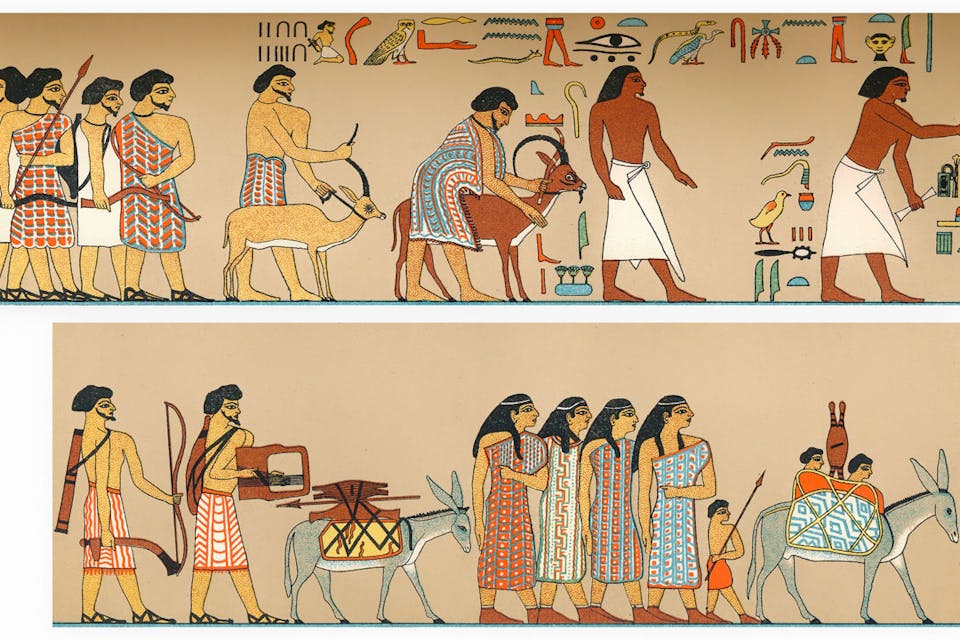
April 4, 2023
How Many Egyptian Words Made It into Biblical Hebrew?
And does their presence illuminate the book of Exodus—or is it simply a sign that ancient Egypt was a powerful nation?
A while ago I wrote a column about the word sha’atnez, signifying the weave of wool and linen forbidden by the Bible, in which I observed that it derives from ancient Egyptian and “testifies to a period in which the early Israelite nation, or a part of it, was in intimate contact with Egyptian life.” I even went so far as to imply that an Israelite sojourn in Egypt, and therefore the exodus from it that we are celebrating this week, is attested to by words like sha’atnez. Did I go too far?
That’s a question implicitly asked by the Mosaic reader Frederick P. Wiener, who recently wrote:
Can we assume that the Hebrews, as they were then known, spoke Hebrew during their reputed 400-year sojourn in Egypt? Or should we assume that they would have adopted ancient Egyptian as their vernacular, or perhaps have spoken a kind of biblical “Yiddish” in which Hebrew and Egyptian were fused together? It would be hard to credit that, living in Egypt for a lengthy time as a small minority, they would not have learned the local language, if only for survival purposes. And if they spoke Egyptian, or a Hebrew-Egyptian mélange, both in Egypt and during their 40 years in the desert, would they not have gone on speaking it for at least their first generations in Canaan? But how then does this square with the fact that it is difficult to attribute an Egyptian provenance to all but a few biblical words?